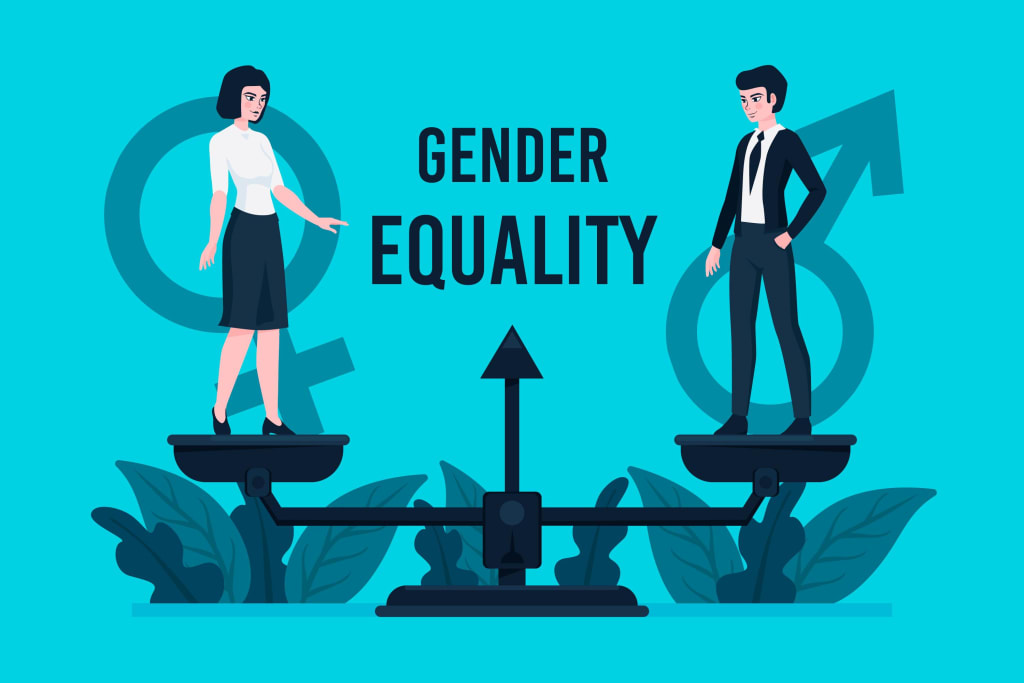Gender equality as a fundamental human right
The Global Efforts to Achieve Gender Equality as a Fundamental Human Right

Gender equality has been a topic of discussion for decades, and it continues to be a pressing issue in society. Gender inequality exists in every corner of the world, and it has profound effects on individuals, families, communities, and society as a whole. In today's world, gender equality is considered a fundamental human right. It is an essential aspect of human development and is critical to achieving sustainable development.
Gender equality is about equal rights, opportunities, and treatment for all individuals, regardless of their gender. It means that women and men have equal access to education, healthcare, employment, and political representation. It also means that both genders should be treated equally in the eyes of the law, and gender-based violence and discrimination should be eliminated.
Gender equality is essential because it promotes social and economic development. When women and men have equal access to resources and opportunities, it leads to more inclusive economic growth, poverty reduction, and increased productivity. It also improves health outcomes and educational attainment, which is critical to achieving sustainable development.
Gender inequality, on the other hand, has a negative impact on development. For example, gender-based violence and discrimination can lead to poor health outcomes, decreased educational attainment, and decreased productivity. It also has a negative impact on economic growth and can perpetuate poverty.
One of the most significant barriers to gender equality is cultural and social norms that promote gender discrimination. These norms reinforce gender roles and stereotypes that limit women's and men's opportunities and reinforce inequality. For example, the belief that women should stay at home and take care of the family, while men should work and provide for the family, reinforces gender inequality.
Another significant barrier to gender equality is inadequate legal protection. Many countries have laws that discriminate against women, and in some cases, these laws even promote gender-based violence. For example, some countries have laws that allow men to marry multiple wives, but women are not allowed to have multiple husbands. This type of discrimination is unacceptable and goes against the fundamental human right of gender equality.
Eliminating gender inequality requires a multi-faceted approach. It involves changing cultural and social norms that promote gender discrimination, enacting and enforcing laws that promote gender equality, and providing equal opportunities for women and men.
Education is also critical to achieving gender equality. Education is essential for both women and men, as it helps to promote gender equality by challenging traditional gender roles and promoting equal opportunities. It also helps to raise awareness about gender-based violence and discrimination, and the importance of gender equality.
The media also has a crucial role to play in promoting gender equality. The media has the power to shape people's perceptions of gender roles and stereotypes. By promoting positive images of women and men, and challenging negative stereotypes, the media can help to promote gender equality and challenge discrimination.
The private sector also has a role to play in promoting gender equality. Many companies are recognizing that promoting gender equality is not only a moral imperative but also good for business. Gender diversity in the workplace leads to better decision-making, increased productivity, and improved financial performance.
Governments also have a crucial role to play in promoting gender equality. They must enact and enforce laws that promote gender equality and protect women's and men's rights. They must also invest in social programs that promote gender equality, such as access to education, healthcare, and employment opportunities.
International organizations and civil society organizations also have a critical role to play in promoting gender equality. They can provide financial support and technical assistance to governments and local organizations to promote gender equality. They can also advocate for policies and programs that promote gender equality and challenge discrimination.
In conclusion, gender equality is a fundamental human right that is critical to achieving sustainable development. It is essential to eliminate gender-based violence and discrimination, promote equal opportunities for women and men, and challenge cultural and social norms that reinforce inequality.





Comments
There are no comments for this story
Be the first to respond and start the conversation.